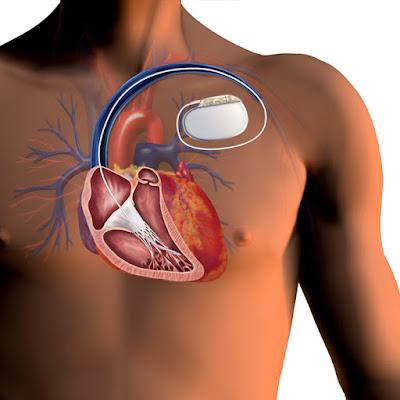
Implantable Cardioverter-defibrillators Market
Implantable Cardioverter Defibrillator Market, By Product Type (Transvenous ICD, Subcutaneous ICD), End User (Hospitals & Clinics, Ambulatory Surgery Centers and Others) by Region (North America, Latin America, Europe, Asia Pacific, Middle East, and Africa)- Size, Share, Outlook, and Opportunity Analysis, 2022 – 2030
The Implantable Cardioverter Defibrillator Market is estimated to be valued at US$ 12.8 billion in XXX and is expected to exhibit a CAGR of 7.20 % over the forecast period, as highlighted in a new report published by Coherent Market Insights.
Market Overview:
An implantable cardioverter-defibrillator is a tiny battery-powered instrument fixed in the chest to identify and inhibit abnormal heartbeats. An Implantable Cardioverter Defibrillator constantly regulates the heartbeat and provides electric shocks, while required, to restore a normal heart rhythm. One might require an Implantable Cardioverter Defibrillator if one has a treacherously fast heartbeat that regulates the heart from offering enough plasma to the rest of the body or if one is at huge threat of such a heart rhythm difficulties, generally due to a weak heart muscle. An Implantable Cardioverter Defibrillator is different from a pacemaker — a grafting instrument that can stop hazardous slow heartbeats.
Competitive Landscape:
Key players involved in the global implantable cardioverter-defibrillators market are Boston Scientific Corporation, Inc., MicroPort Scientific Corporation, Mayo Clinic US, LivaNova PLC Company, Imricor Medical Systems, Medtronic plc, St. Jude Medical, Inc., and MRI Interventions, Inc.
Market Key Drivers:
Increasing rate of smoking, obesity and sedentary lifestyle leads to sudden cardiac arrest which is expected to augment the growth of global implantable cardioverter-defibrillators market. For instance, as per NIH, Cardiac arrest results around 300,000 to 450,000 mortalities in the U.S. annually.
Rising awareness regarding cardiac health and the rising regulatory initiatives is projected to boost the growth of global implantable cardioverter-defibrillators market. For instance, in September 2019, the Dubai Corporation for Ambulance Services declared a donation of 80 AEDs to several places of worship, private and regulatory entities, and other places in the city.
Covid-19 Impact Analysis
The COVID-19 outbreak had adversely affected the global implantable cardioverter-defibrillators market, in specifically the ICDs market, with impeded requirement and sales in 2020. The sales enhanced as the healthcare centers started elective surgeries. Anyhow, rise of COVID-19 in various key markets endured to make uncertainty in the complete year.
Key Takeaways:
The global implantable cardioverter-defibrillators market is anticipated to exhibit a CAGR of 7.20 % during the forecast period owing to rising demand of ICDs to offer treatment to people. For instance, in January 2021, Boston Scientific distributed approximately 659,000 ICDs across the globe.
Among regions, North America, Europe and Asia Pacific are expected to witness robust growth in global implantable cardioverter-defibrillators market due to rising cases of cardiac arrest, rising collaborations and partnerships, increasing product launches and approvals and the rising penetration of defibrillators. For instance, in 2020 Nihon Kohden, a Japanese key player recorded around US$ 66,000 sales of labor-intensive external defibrillators.
